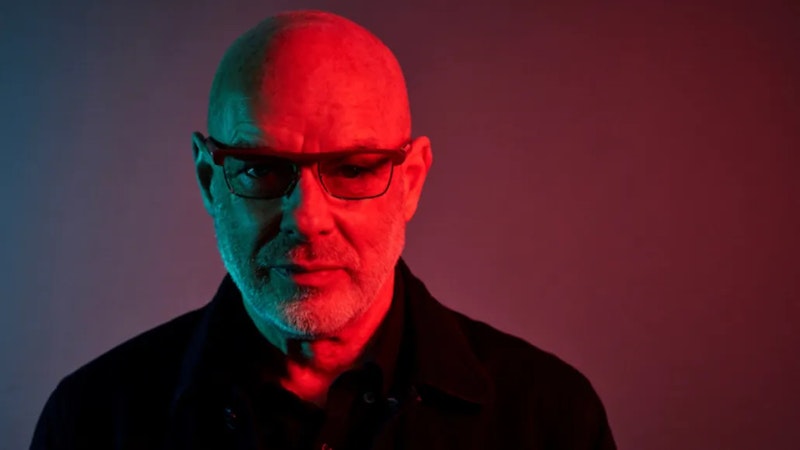My favorite holiday album this year is Roger Eno’s the skies, they shift like chords (the lower case is in the official title). Eno’s a British maestro of minimalism, the musical genre that uses spare piano parts, electronica, ethereal outer space sounds, synthesizers and any odd sound found around the house to create lovely audio soundscapes. As Eno said in a recent interview, it’s a matter of not piling on but subtracting—leaving space where the listener can “co-write” with their imagination.
I’m embracing Eno not only because I’m tired of the usual Christmas songs, but because my ideas about Christianity have changed in the last few years. I’m more focused on love and less on punishment. I think God is Love and that we’re not necessarily wretched creatures who need to be saved—which isn’t to say we don’t need grace. To quote Bishop Robert Baron, I see God as not only love but the act of being itself—not a force that is in competition with us or the universe. I believe we may already be gods, in the sense that we’re souls who have experiences that crack open the door to heaven even while we are on Earth. I have doubts about hell but know evil is real.
Maybe I just go with the flow now.
Eno’s powerful meditation is the antithesis of the bombast of Christmas. It offers rest from the Holy Rollers pummeling us with the Good News that we’re about to be saved, or Mariah Carey’s annual sugar storm, “All I Want for Christmas is You,” or the obscene spending and tacky decorations.
Since Eno is allowing me to co-author the meaning of the skies, they shift like chords, I see the record both as an evocation of Mary and Joseph’s journey to Bethlehem and a song cycle that conjures thoughts of the early Christian monastics who lived in the desert—the so-called Desert Fathers. The minimalism of Eno fits this desert setting where Christ was born better than the songs about snow, egg nog and reindeer. The song titles evoke not glitter and spectacle but the soul and contemplative spirituality: “That Which is Hidden (Crepuscular),” “Above and Below,” “Arms Wide Open,” “(Through the Blue) St. Swithin’s.” There is “Strangely, I Dreamt,” which evokes the many times that dreams occur in the Bible, from Mary to Pilate’s wife.
In his book The Wisdom of the Desert, author and Trappist monk Thomas Merton explores the legacy of the early Christian monks: “In the fourth century A.D. the deserts of Egypt, Palestine, Arabia and Persia were people by a race of men who left behind a strange reputation. They were the first Christian hermits, who abandoned the cities of the pagan world to live in solitude.” These “were men who did not believe in letting themselves be passively guided and ruled by a decadent state, and who believed that there was a way of getting along without slavish dependence in accepted, conventional values.”
Also: “What the Fathers sought most of all was their own true self, in Christ. And in order to do this, they had to reject completely the false, formal self, fabricated under social compulsion in ‘the world.’”
In my career as a journalist I’ve had the good fortune of being uncontainable. I’m too wild for the conservatives, too right-wing for the liberals, too ribald for the Holy Rollers and too religious for the secularists. I’ve become my own Desert Father, set off from society and yet completely free.

